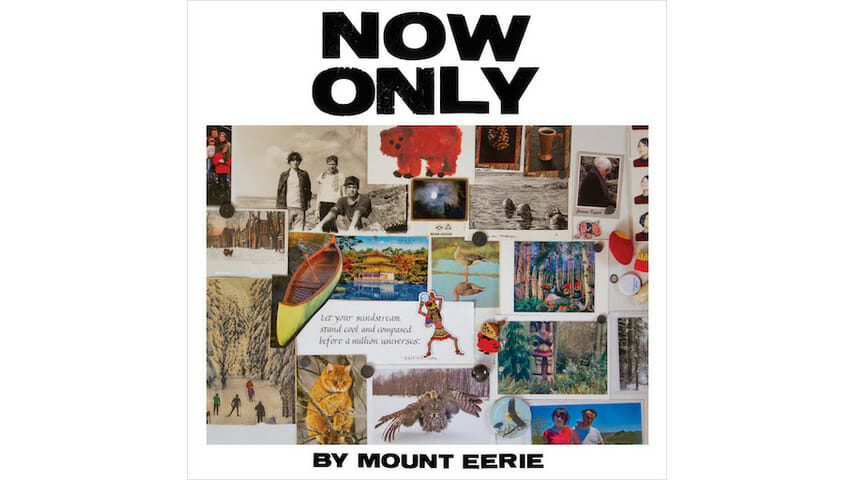Mount Eerie: Now Only

Many years ago, a girlfriend and I spent some time in a cemetery that overlooked Pullman, Washington. We smoked cigarettes and ate some food, fancying ourselves serious, sensitive people even though we hadn’t really experienced much yet. Out of nowhere, she said to me, gesturing to the headstones surrounding us, “They are so lucky.” I was taken aback by the sentiment, not being able to understand how anyone could deem a dead person as “lucky.” I asked what she meant and she said, simply, “Because they know.”
I have thought about that afternoon frequently over the last couple of years as I’ve seen artists that I admire grieve publicly over the loss of a loved one, taken from them and their families far too soon. Comedian Patton Oswalt had his first wife snapped away from him rudely, the result of an undiagnosed heart condition and a reaction to medication. He slowly turned his grief outward, using it as fuel for his most recent stand up special Annihilation and working to finish the book that his wife was working on when she passed. Singer/songwriter Phil Elverum, on the other hand, had to watch the slow disintegration of his wife, Geneviève Castrée, from cancer and witness her last breaths. He, too, let the pain and sorrow of the loss fuel his art, unveiling the almost uncomfortably intimate album A Crow Looked At Me in 2017 and returning this year with a new collection, entitled simply Now Only (both recorded under the name Mount Eerie). Would they, I’ve wondered, deem their loved ones “lucky” for knowing what comes after life?
With A Crow, the answer is, most assuredly, no. The wounds were too fresh for Elverum to want anything more than to have his wife back. But on this new follow up, he may be edging toward an affirmative answer, albeit begrudgingly. Now Only is still as wrenching and direct as its predecessor, but concerns itself, at times, with the bitter truth that, sooner rather than later, he’ll be gone, too.
At this moment, his chief concern is wondering what he’s leaving behind and how long it will be before his life and work is completely swept aside and forgotten. In the poignant, epic-length “Distortion,” he recalls a conversation with his mother where he told her that he wanted simply to be remembered for something. “Not to be famous, but just remembered a little more,” he sings. “To echo beyond my actual end.” As he’s all too aware, though, echoes eventually quiet down to nothing. He relates this to his own presence on Earth, reflecting his Castrée’s life to the world: “I keep you breathing through my lungs/in a constant uncomfortable stream of memories/trailing out until I am dead, too.” And on it goes until the people he knows are gone and his own echoes slowly fade to silence.
-

-

-

-

-

-

-

-

-

-

-

-

-

-

-

-

-

-

-

-

-

-

-

-

-

-

-

-

-

-

-

-

-

-

-

-

-

-

-

-








































